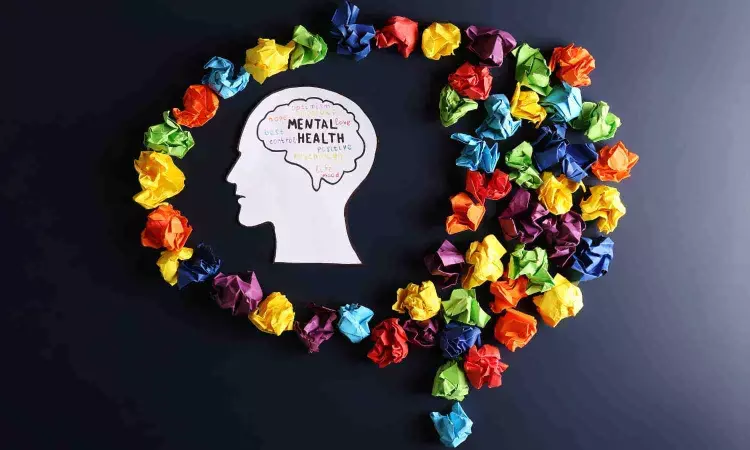- Home
- Medical news & Guidelines
- Anesthesiology
- Cardiology and CTVS
- Critical Care
- Dentistry
- Dermatology
- Diabetes and Endocrinology
- ENT
- Gastroenterology
- Medicine
- Nephrology
- Neurology
- Obstretics-Gynaecology
- Oncology
- Ophthalmology
- Orthopaedics
- Pediatrics-Neonatology
- Psychiatry
- Pulmonology
- Radiology
- Surgery
- Urology
- Laboratory Medicine
- Diet
- Nursing
- Paramedical
- Physiotherapy
- Health news
- Fact Check
- Bone Health Fact Check
- Brain Health Fact Check
- Cancer Related Fact Check
- Child Care Fact Check
- Dental and oral health fact check
- Diabetes and metabolic health fact check
- Diet and Nutrition Fact Check
- Eye and ENT Care Fact Check
- Fitness fact check
- Gut health fact check
- Heart health fact check
- Kidney health fact check
- Medical education fact check
- Men's health fact check
- Respiratory fact check
- Skin and hair care fact check
- Vaccine and Immunization fact check
- Women's health fact check
- AYUSH
- State News
- Andaman and Nicobar Islands
- Andhra Pradesh
- Arunachal Pradesh
- Assam
- Bihar
- Chandigarh
- Chattisgarh
- Dadra and Nagar Haveli
- Daman and Diu
- Delhi
- Goa
- Gujarat
- Haryana
- Himachal Pradesh
- Jammu & Kashmir
- Jharkhand
- Karnataka
- Kerala
- Ladakh
- Lakshadweep
- Madhya Pradesh
- Maharashtra
- Manipur
- Meghalaya
- Mizoram
- Nagaland
- Odisha
- Puducherry
- Punjab
- Rajasthan
- Sikkim
- Tamil Nadu
- Telangana
- Tripura
- Uttar Pradesh
- Uttrakhand
- West Bengal
- Medical Education
- Industry
Highly sensitive people are at higher risk of developing mental health problems, finds research

New research found that highly sensitive people are at higher risk of developing mental health problems
First ever systematic review and meta-analysis of its kind shows highly sensitive people are more likely to experience mental health problems
A new study from the University of Surrey and Queen Mary University of London, has found a correlation between high sensitivity and various mental-health conditions including depression, anxiety, obsessive-compulsive disorder (OCD), post-traumatic stress disorder (PTSD), agoraphobia, social phobia and avoidant personality disorder.
People with high sensitivity tend to process sensory information more deeply, making them more easily overwhelmed and overstimulated, but also more prone to respond better to different psychological therapies compared to those who are less sensitive.
The research, a meta-analysis of 33 previous studies, which was published in Clinical Psychological Science, suggests that it’s key for mental health professionals to recognise this trait in their patients and customise their treatments in order to be more effective. Furthermore, the study suggests that future research should assess the efficacy of specific psychological therapies – e.g. cognitive restructuring, mindfulness, emotion-focused interventions - for patients with differing levels of sensitivity.
Professor Michael Pluess, Professor of Developmental Psychology at the University of Surrey and senior author of the study, said:
"This study provides compelling evidence that high sensitivity is a significant risk factor for a range of mental health issues.
“As highly sensitive individuals may be more vulnerable to certain conditions, they are also more likely to be more responsive to particular psychological therapies, which suggests that a one-size-fits-all approach to mental health care may be inappropriate.
“This isn't about pathologising sensitivity, it's about acknowledging its characteristics that require a more nuanced approach.”
Tom Falkenstein, Doctoral Researcher on Sensitivity and Mental Health at Queen Mary University of London , psychotherapist and lead author of the study said:
“Our findings suggest that sensitivity should be considered more in clinical practice, as it appears to represent a promising transdiagnostic risk factor.
“Given that about 31% of the general population can be considered highly sensitive, and that sensitive individuals seem to respond better to some psychological interventions than less sensitive individuals, sensitivity may be relevant not only for the etiology of psychological disorders but also for psychoeducation, treatment, and relapse prevention. ”
Reference:
Falkenstein, T., Sartori, L., Malanchini, M., Hadfield, K., & Pluess, M. (2025). The Relationship Between Environmental Sensitivity and Common Mental-Health Problems in Adolescents and Adults: A Systematic Review and Meta-Analysis. Clinical Psychological Science, 0(0). https://doi.org/10.1177/21677026251348428
Dr Kamal Kant Kohli-MBBS, DTCD- a chest specialist with more than 30 years of practice and a flair for writing clinical articles, Dr Kamal Kant Kohli joined Medical Dialogues as a Chief Editor of Medical News. Besides writing articles, as an editor, he proofreads and verifies all the medical content published on Medical Dialogues including those coming from journals, studies,medical conferences,guidelines etc. Email: drkohli@medicaldialogues.in. Contact no. 011-43720751


